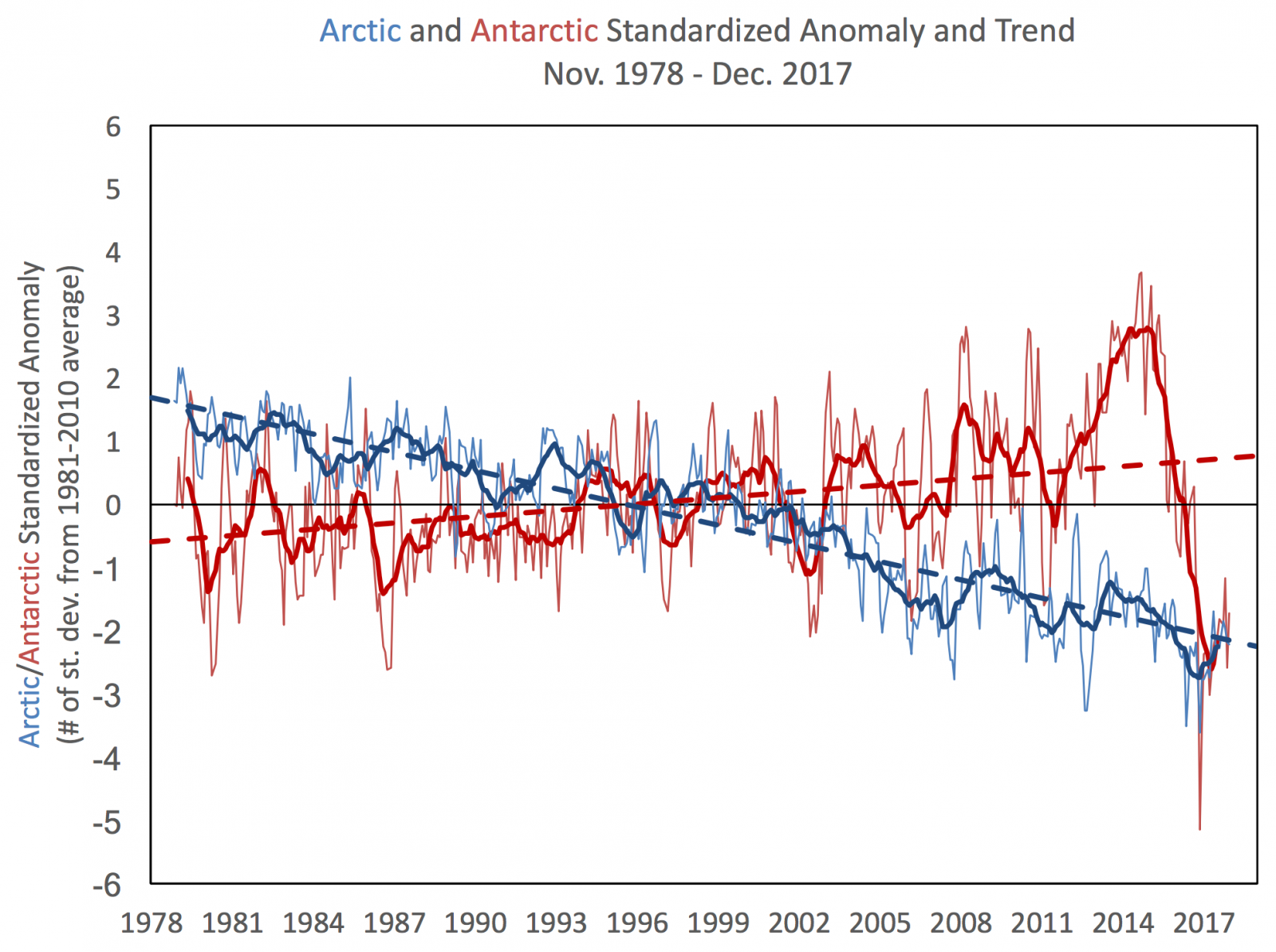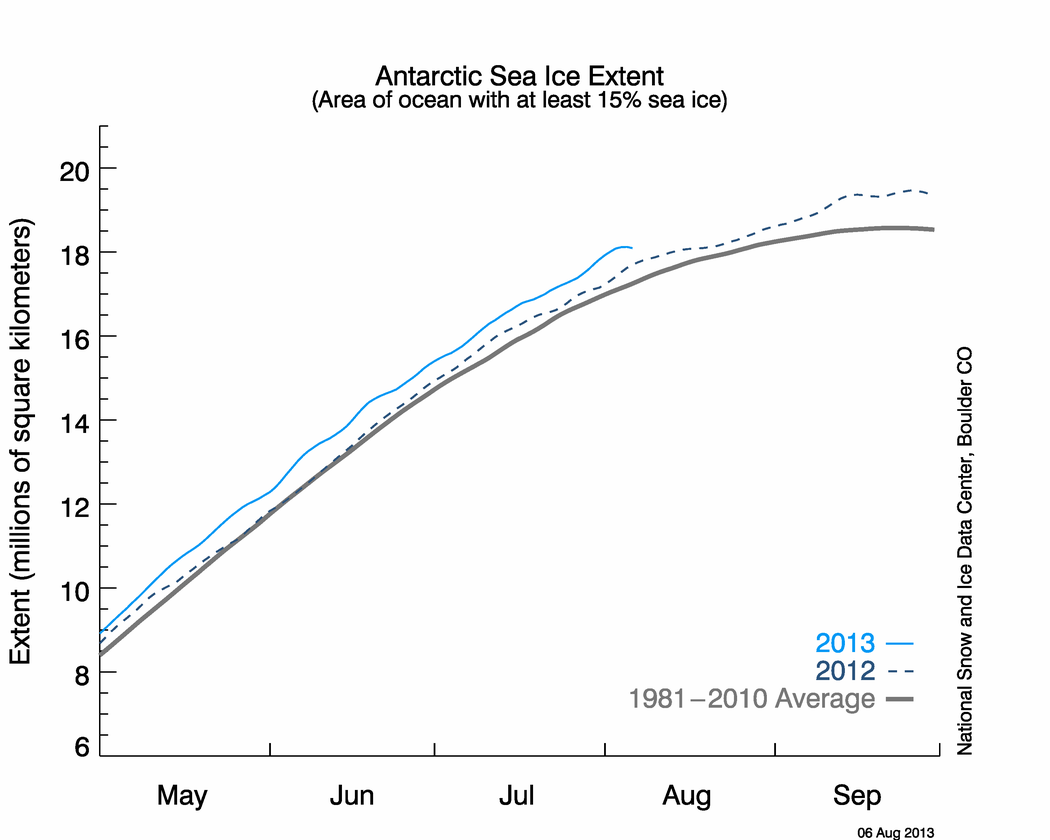Surface Detail
DP Veteran
- Joined
- Sep 20, 2016
- Messages
- 3,244
- Reaction score
- 1,232
- Location
- English Midlands
- Gender
- Undisclosed
- Political Leaning
- Centrist
There are three data: 1955, 2015 and 2017. It is the comparison that makes the point.
Antarctic sea ice is increasing in extent. Do you conclude from that the Antarctic is growing colder?
The idiotic conclusion that Arctic sea ice thickness is greater than now than it was in 1955 relies on that one single datum - a single measurement of sea ice thickness at one location in 1955. Without that datum, there is no argument at all. It would be just as stupid as saying that, for example, the UK is warmer today than it was in 1955 on the basis of a single temperature measurement taken in that year.
And no, the Antarctic sea ice is not increasing in extent.



